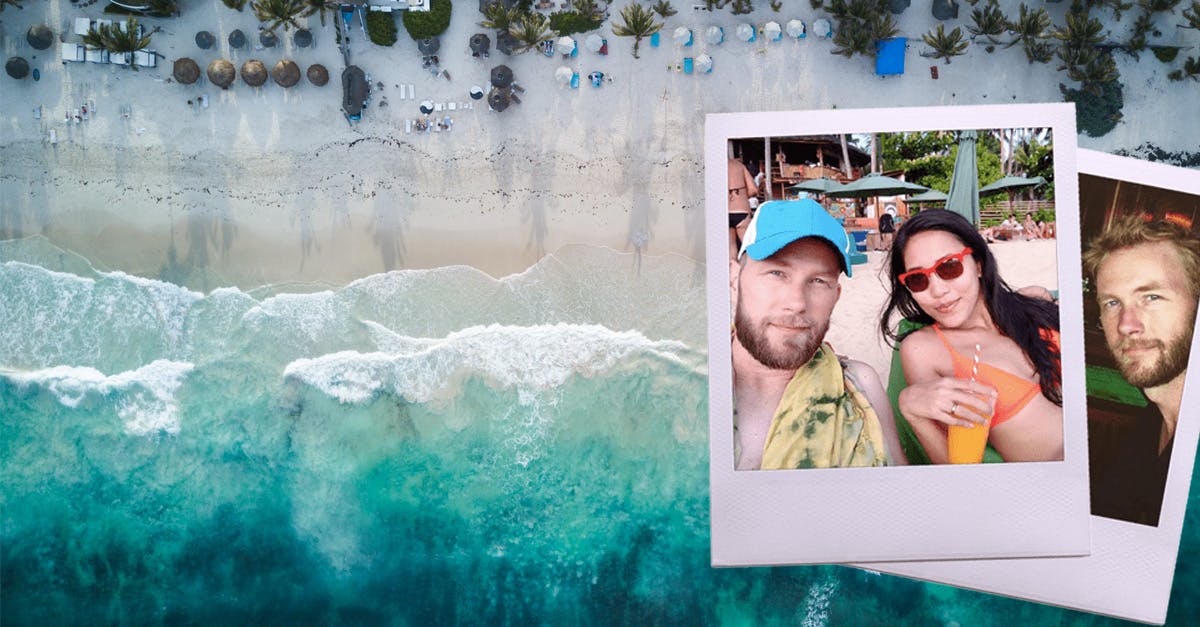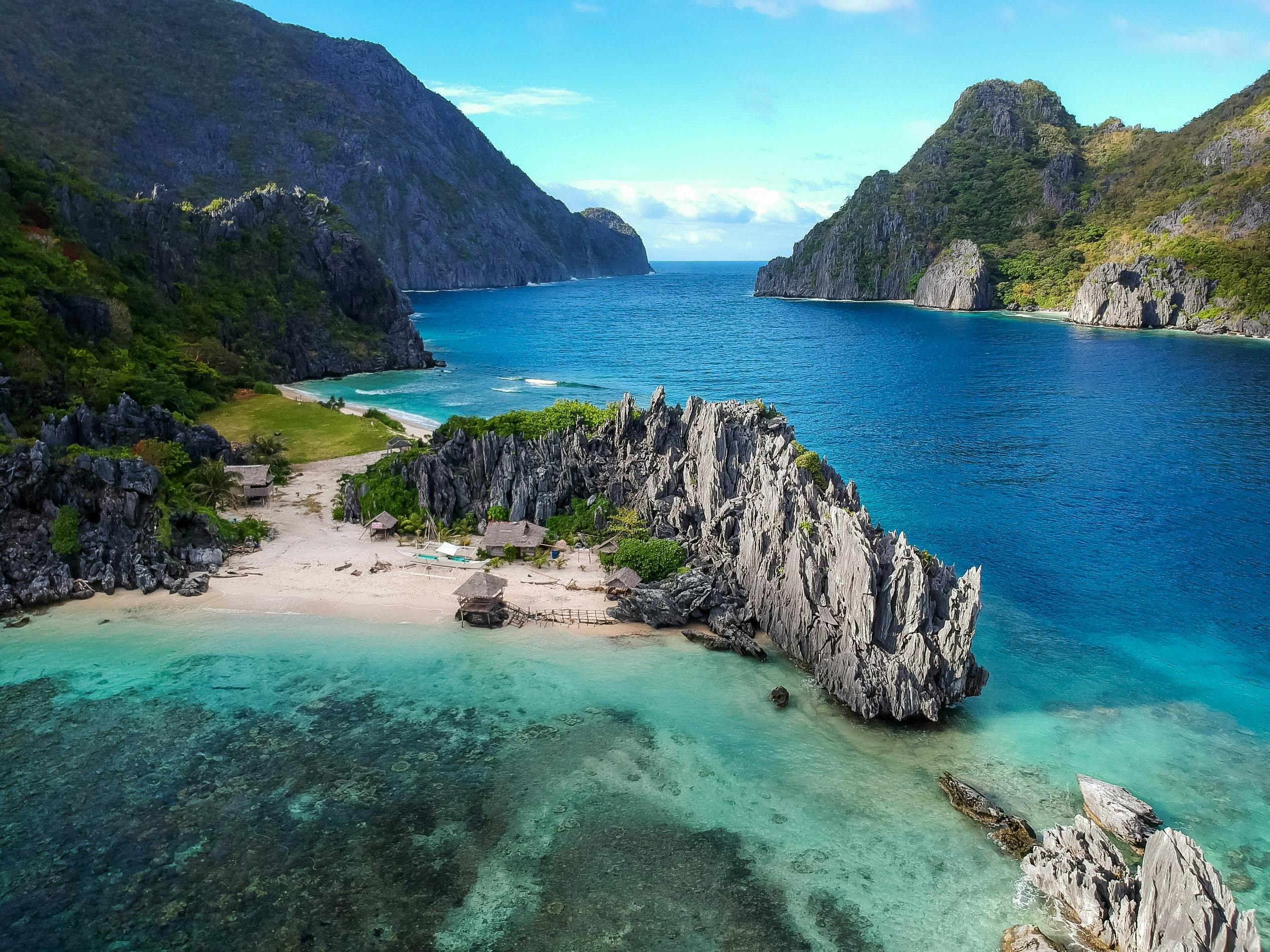
We caught up with Mike from Hobo with a laptop to find out more about how he became a digital nomad and the steps he took to put in place a flexible, balanced life.
What did you do before you worked remotely?
Before I started traveling I was an ecommerce consultant who planned and then managed massive website projects. It began as an in-house job for an ecommerce company, and evolved into me working directly for my clients as a consultant, later on.
When I decided to travel full time I started by living in a remote part of Thailand and internet wasn’t very good, so I had to start over with my career completely. I wasn’t able to sustain the phone calls required to do my old job.
Afterwards, I went back to my roots in internet marketing. I was all over the board, working for SEO companies doing odd jobs and rewriting the internet, one post at a time. Without a body of work, I felt I had to undercharge for my work.
Eventually, I had a few thousand articles under my belt and that’s when I formalized my career choice with a new company called Copyrise.
I did internet marketing in the travel niche for awhile, and then started a blog called Hobo with a Laptop —and by accident, it pulled in more quality projects than Copyrise did at the time.
Before the end of the year I plan to make Copyrise operational again, and fork Hobo with a Laptop with a more professional version of itself called The Roaming Economy.
What year did you first become a digital nomad?
I’d been nomadic in one form or another since I was 18, I just didn’t know what to call it.
I’d live somewhere for a year or two, then sell all the stuff I’d accumulated, and start over somewhere else. I did this in Canada from coast to coast between the ages of 18 and 33.
In 2013 I saw my first palm tree in the Spring, and I was hooked. By Autumn, I was on a plane to Thailand.
How did you become a digital nomad?
It was a natural progression and didn’t require much thought or planning in advance. I was already working for myself by the time I adopted the digital nomad lifestyle in Thailand.
I did do a stint of living in a private room in a hostel in Toronto while holding down a “real job”. It was practice, to see if I could do it.
No one knew I’d given up my apartment and was living with a bunch of transients from around the globe —some of whom became really close friends I still know almost a decade later.
If I had to break it into steps for someone else to repeat it;
- Get a remote job; you’re here, so I think you’ll cross that off your list soon
- Purge everything you own over the course of year, keep nothing that doesn’t fit in a 55 litre backpack
- Start a side hustle on top of the remote job, and get really good at both of them —for me it was a blog, but whatever it is, learn how to manage your time effectively
The remote job is a stepping stone, the side hustle is your totem that becomes a big part of who you’ll become. Becoming a digital nomad is all about transition.
Learn how to use the tools required to be successful with whatever you do, and invest in yourself with online courses from reputable people.
There’s a sea of infoproducts out there, do your best to avoid charlatans who put on a lab coat and call themselves a doctor.
I’ve spent almost $5k this year alone on upgrading my skills, it pays for itself.
What's a typical day in your life currently?
Right now, I live in Palawan, Philippines. It’s a beautiful, clean island and we have an apartment that we found on Airbnb.

I’ve been working around the clock on Hobo with a Laptop, and preparing to launch Copyrise (again) and The Roaming Economy. So I’m in a bit of a vacuum at the moment.
The hustle is real.
When the dust settles on these projects, I’ll go back to my regular schedule:
Every morning I’ll write, do some on-site SEO, or read Slashdot over a few cups of coffee.
Around noon, I’ll exercise if I’m feeling it. Then we’ll cook, or head out to a local restaurant for lunch.
In the afternoon, I might work on a client project if I have anything like that on my plate. And I typically do 2 - 4 coaching calls a week with clients in the US.
In the evenings I’ll usually head to the beach with my wife, a local, and we’ll talk about life or socialize with friends passing through over a cold beverage.
On the weekend, we usually head to a nicer beach town an hour away where there’s no cell reception and do some snorkelling, swimming, or hiking.
That’s the draw of the lifestyle; a simple life where you earn high value currency online in one country, and spend it in a country where it goes further.
In our case, a lot further. I’m saving more money now for retirement than I ever could have back home. And the living is easy.
That is, when I’m not biting off more than I can chew. Right now I’d say I’m spending 12 hours per day glued to a laptop but we still take weekends off.
What's the thing you enjoy most about being location independent and working remotely?
Coffee and sunsets. My morning routine. The fact that this lifestyle introduced me to my wife, my best friend and business partner.
How do you support yourself financially day to day?
Online coaching (read: talking) is just about all I do in terms of trading time for money. I’ve got a few friends I’ll help out with writing or web design, when it’s needed.
After 14 months of hard work, Hobo with a Laptop has replaced our need to do client work for the most part. Oshin’s retiring in February, and we’re considering starting a family.
The majority of my time is spent working on what will support us financially in the future. It’s a thankless job right now, but it will pay for itself next year.
When I reboot Copyrise I intend to replace myself within a month or two. After that, I’ll just keep up what I’ve already started by creating content on a regular basis. Spinning plates.
What first gave you the idea for Hobo with a Laptop?
Originally, I had no idea what it was for. It started as a blog about sustainable living. I was into “tiny houses”, van life, and living a vagabond lifestyle. I wrote a few posts and then let it decay for a few years.
It was only when I found an old login for an affiliate program I’d signed up to that everything changed. That was around May 2017.
I had a few links on Hobo for tiny house building plans. How niche can you get?
When I logged in I found that I’d accumulated enough money to take a month off. So I rebooted Hobo with a Laptop with a new purpose, and it became what it is today. It was cash positive within a few months.
Now the idea is this; help others become un-stuck —help as many people as I can to get a passport, become location independent, and make money online.
You know, become hobos with laptops and all that.
What do you hope to be doing in 5 years time?
More of the highlights I’ve got in my life today, but with a family on top of that.
More time living in places without cell reception. More time at the beach and wide open green spaces. Working in my own greenhouse, maybe running a family farm. And an income that’s on autopilot.
I’m using the digital advantages we have today to live analog tomorrow. Anything less feels like I’m treading water. And I won’t stop until I achieve this goal.
What is the one thing you would advise to anyone looking to take great control of their work life?
Look beyond what’s right in front of you. Have a clear vision of what you want your life to be like and take steps every day, even small steps, to make it reality.
Understand the truth in that you will not fail in the long run if you do not stop trying.
A remote job is just a stepping stone to something bigger. Keep investing in yourself, learn new skills, and keep increasing your billable wage on an annual basis.
Oh, and don’t use credit cards —they’re just a modern form of slavery.
--
Michael Hulleman is an online entrepreneur, blogger, and Hobo with a Laptop. He’s lived abroad since 2013, and travels full-time with his wife Oshin.
